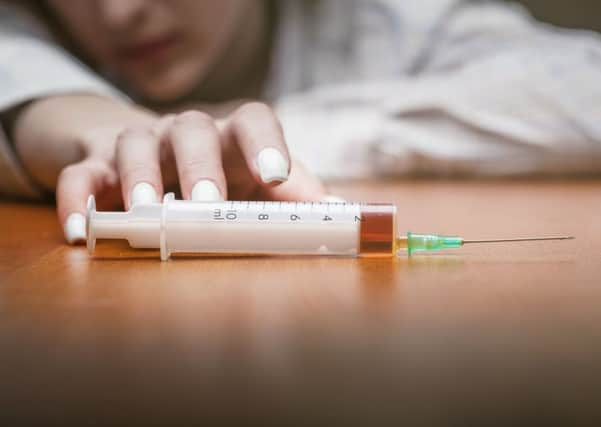Neil Findlay: Complacency about drug deaths is a scandal


Today the streets are awash with cheap cocaine – a drug previously only affordable to the middle classes. And as our news screens now show, it’s new psychoactive substances or NPS that are the latest drugs phenomenon. The reality is that the drugs market changes and reacts like any other market with consumer choice influencing supply.
Figures published over the summer by the National Records of Scotland show drug deaths are running at two-and-a-half times the rate of the rest of the UK.
Advertisement
Hide AdAdvertisement
Hide AdA total of 867 people in Scotland died after using illegal or prescription drugs in 2016, 23 per cent more than a year earlier, and 106 per cent more than in 2006. These statistics are shocking and should shame us all. If these were figures for flu or another common condition there would be outrage; working groups would be convened, politicians would be on the media, budgets would be allocated and action would follow. But because this is about drug addiction and drug addicts there is no outrage, little media coverage, no taskforce established, no additional budget allocated. I suppose there ain’t many votes in addiction.
As a regional MSP, I have come into contact with a number of families affected by drugs and addiction. It can and does affect people of all backgrounds – the idea that it couldn’t affect my (or your) family, my friends or me is nonsense. But the reality is, of course, that drug deaths disproportionately impact on working-class communities. Poverty, unemployment, low pay and poor life chances, combined with cuts to local support services, create a gap that some try to fill with drugs and alcohol in an attempt to take away the pain.
Last week the Home Office rejected proposals for a safe injecting room in Glasgow city centre. The pilot project proposed allowing users to bring street drugs purchased away from the premises and take them in a supervised setting in a safe way, while also offering heroin-assisted treatment (HAT), providing prescribed medical heroin to a small number of drug users who had exhausted other options. This was partly an attempt to address a serious public health concern in a city which has seen a recent and very worrying spike in HIV infection rates. The refusal of permission for this facility is yet more evidence of a failed approach and it is likely to cause more infections and more deaths.
A few weeks ago I attended a seminar hosted by Scotland’s Future Forum, the Scottish Parliament’s internal think tank. The purpose of the event was to look back at the forum’s report of 10 years ago on drugs and drugs policy. The sad reality is that much of that good work failed to shift drugs policy in any meaningful way as is self-evident from these latest death rates. This has to change.
We have to have a major review of how we deal with drugs and we need to see the deaths of hundreds of our fellow citizens for what they are – a major public health crisis. We can’t arrest our way to a drug-free Scotland, we can’t pretend that if you just tell people not to take drugs, they won’t take them. We have tried that and drug supply, consumption and deaths are at record levels. I won’t pretend that I have the answers – I absolutely do not – but what I do know is that what we are doing just now is failing and failing badly.
I know that there are parliamentarians from across all the political parties who share my concerns and believe that we need action, sooner rather than later. I hope that 2018 brings a serious debate about these hugely important issues. Failure to do so will see 1,000 Scots die before they see another Christmas.
Neil Findlay is Scottish Labour MSP for Lothian